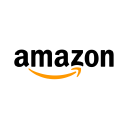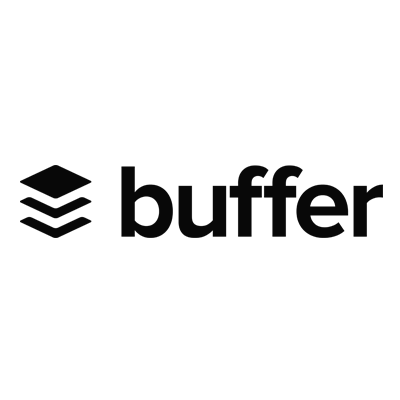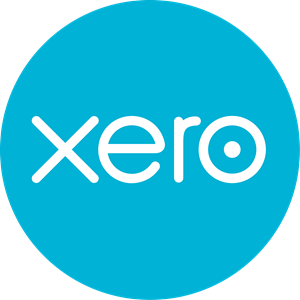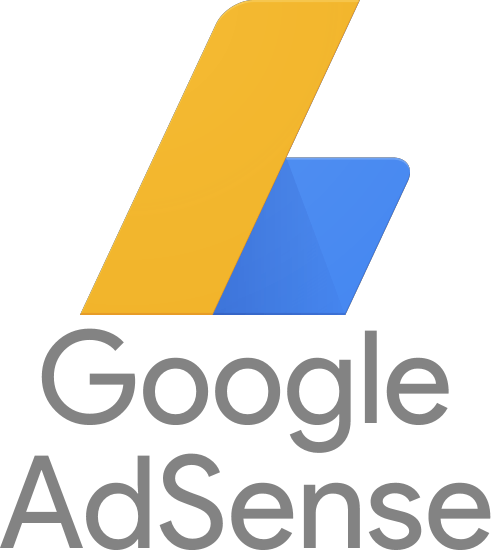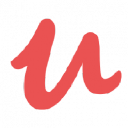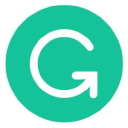
On Building A Graphic Design As A Service Company And Completing 10K Projects
Hi! I am Quentin, co-founder and CEO of ManyPixels, an on-demand graphic design startup. ManyPixels provides any startup, SME, or agency from around the globe access to a vetted and talented graphic designer. Our services start at just $399 a month so companies of all budgets and sizes can achieve masterful graphic design at an affordable price.
ManyPixels was started almost two years ago. We didn’t find our groove and product-market fit until the one-year mark. It has been quite a bumpy road. But, with a team of 25+ fulltime designers and over 10 thousand design projects under our belt, we’re now on a fast-track to great growth.

We’re about building relationships between our roster of graphic designers and our clients, with the goal that as designers and clients collaborate on projects together, the designer becomes more familiar with the client’s needs and brand sensibility. In this way, ManyPixels designers become not just another freelancer to tap when in a pinch, but a reliable go-to resource that becomes an extension of the client’s team.
That’s part of why we are passionate about what we do. We assist our clients to get their brand out there – no matter their budget. Any company we work for can enjoy all the benefits of having an in-house graphic designer without going through the hassle of having to find, hire, manage, and heaven forbid - fire one.
What's your backstory and how did you get into entrepreneurship?
After studying finance at college, I started my professional career at a big corporate company. I quickly realized the 9-5 routine in a 200-year-old company wasn’t for me. There’s a great quote by Steve Jobs that’s a good summation of my experience in the corporate environment:
“When you grow up you tend to get told that the world is the way it is ... Life can be much broader once you discover one simple fact: Everything around you that you call life was made up by people that were no smarter than you. And you can change it, you can influence it … Once you learn that, you'll never be the same again.”
I didn’t fit into corporate culture or the corporate belief system.
There is no luck if you work hard opportunity will present itself, sooner or later.
I felt like the job was just a waste of my time, energy, and my life in general. One year in - I quit. I decided to pick more “marketable” skills to get a shot at a younger, smaller, and more exciting company that had room for creativity and innovation.
Three months after I quit that corporate job, I joined the Data Team of Lazada in Bangkok. Lazada was one of the fastest-growing startups in Southeast Asia and was receiving huge investments from Alibaba. The job, the people, the company - everything - was much better than the previous corporate job. I was able to flex my creativity and broaden my skills. However, I was still missing something. I knew I had to build something of my own. I quit again.
I believed that I could have a professional life that wasn’t 9-5. I put all my savings into launching my own line of teeth whitening products. I then launched a business intelligence agency. On top of that, I was also doing some consulting/freelancing to pay the bills. Although these experiences didn’t yield the kind of success I was after, I learned so much. Months later, my co-founder came to me with the idea of ManyPixels. He had already started working on it for a while but needed help. I jumped on board and haven’t looked back since then.

Take us through your entrepreneurial journey. How did you go from day 1 to today?
The first was e-commerce. Anything I could find about the e-commerce industry I read it, just ate it up. From how to set up a Shopify store and sell through Amazon to how to source products from China. Two months later, my partners and I launched a line of DIY tools on Amazon US.
Shortly after, sales started taking off and everything was looking up… that is until Amazon took its cut. Ouch.
So that lasted a few months… We then decided to expand our current DIY tools offering and starting a new line of teeth whitening products. Soon after, we realized that after the products were launched, there wasn’t much to do. And to launch more products, we needed cash, which we did not have, only for that cash to be strapped in inventory.
I already knew this wasn’t something I was really interested in long-term and started hunting for another business opportunity. As I brainstormed my next move, I consulted and freelanced specializing in business intelligence/data experts. The income was good, and I enjoyed the work. But I soon realized I wasn’t building an asset; I was selling my time.
I partnered up with another one of my friends and launch a “done-for-you” dashboard agency. The idea was simple: going after SaaS and marketing agencies and aggregate all their data into super dope dashboards so they can see in real-time what’s happening in their business and make better data-backed decisions. This was especially useful for marketing data. We put a lot of thought into the pricing structure and decided with a monthly recurring fee, much like a SaaS. The different plans varied on the number of sources we had to pull data from (FB Ads, Google Ads, AdRoll, Twitter, Quora, etc).
In the first month, we signed two customers. In the second month, we signed a big ass California startup. We were super excited! We worked our asses off and started delivering great dashboards. Things were rolling, we thought we were really onto something… but then our clients needed more customized dashboards with more data sources. This meant higher technical costs, which lead to the conclusion that we couldn’t productize the service as we once thought and that it was always going to be time = money.
Meanwhile, while this was happening, I had started working on ManyPixels – and it was taking off. The company demanded my attention more and more. It wasn’t a hard call, we closed the agency and I went full throttle on ManyPixels. Looking back now, this was definitely the right call.
How are you doing today and what does the future look like?
We are finally getting to that growth phase. We are now a truly global team of 25+ members hailing from Belgium, France, Hungary, Romania, Ukraine, Russia, Indonesia, and the Philippines. We’re making progress and refining our internal processes, which in turn boost our gross margin and most of all our customer satisfaction. For example, right now we’re focusing on integrating all of our SOPs directly into our web app.
In the near term, we are focused on growing and increasing our retention. We know this is a new service, as such there is a lot of work to onboard and educate the clients. For example, clients often don’t realize just how much we can help them with and how to maximize what they get out of the service. We are intent on building an awesome customer success team to address that. We’ll also be experimenting with having designers working in the same time zones are their assigned customers to speed up the delivery process and encourage real-time communication. We want to keep improving the app usability and possibly build a Slack integration. We just realized a brand profile feature where users can save their brand assets without having to upload them for every new design requests. All in an effort to be more and more integrated within the workflow of our customers.
Long term, we aim to be the go-to solution to get great quality design work done. And on a more personal note, I am more and more fascinated by the future of work and how it is shaping up in front of our eyes. The way we hire, contract, outsource, and collaborate is evolving and I want to be part of that change – on-demand services like ManyPixels will play a tremendous role.
Through starting the business, have you learned anything particularly helpful or advantageous?
I’ve learned much more in the last year than during my 4 years at college. From building and managing a team to doing customer interviews, to designing the product and setting up the operations – there are a hundred new things to learn from my colleagues and our customers each day.
This learning part is what excites me the most.
What platform/tools do you use for your business?
In the beginning, we worked with a bunch of SaaS and productized services for content, ads management, etc. As we grow, we are moving most of those tasks in-house. The biggest move was when we launched our own web project management app to manage all our users and their design projects. More and more we see ourselves as a tech-enabled company and will continue to focus on that going forward.
As for productivity apps, we use the usual stack: G Suite, Slack, Asana, Intercom, Mailchimp, Buffer, etc. Asana and Intercom are by far my favorites. We don’t use a CRM yet but Pipedrive is on our list.
Being a remote team, AttendanceBot in slack is pretty cool. We use Slite for our shared notes, processes and stuff that need to “stick.” For one-off projects, we find talents through Upwork.
What have been the most influential books, podcasts, or other resources?
I consume a lot of my content from Youtube, it’s just faster and easier (especially with the x2 speed). Channels I’m hooked on Y Combinator, StartupFood, Slidebean: Startup 101, and a few others of the same kind.
I try to have only relevant and motivating stuff on my social media feeds. This helps me temper distractions. I try to have a rotation of two different books on hand at any one time – a hard read or self-development read and a story. My latest “hard reads” include Traction, Profit First, The Lean Startup and I really enjoyed Shoe Dog and Total Recall as inspirational stories. I don’t read enough, so one of my goals of 2020 is to dedicate half a day per week to reading and self-development.
Advice for other entrepreneurs who want to get started or are just starting out?
Most of those are really cliche, but I still find them very useful.
If you have a question, look to your customers. They can usually answer it and will help direct you down the right path. Don’t hesitate to call them up. Always be as transparent as you can with them and share your ideas and vision. Touch base often to make sure you know their pain points and always brainstorm solutions. If the pain is big enough and the solution good enough, ask yourself if they’d be willing to pay for it?
One of the biggest traps I’ve experienced is trying to work on both the questions and answers on your own.
Don’t hesitate, go for it. It is all about iteration and testing anyway. No one gets it right the first time. The faster you get feedback, the faster you can adapt.
I wasn’t alone in all these, for the most part, unsuccessful experiences I always had a partner.
Start small, get your feet wet. Go for proven business models, try to get your first sale asap.
You don’t need to invent something from scratch, you can see what works and build upon that. You can propose a variation of what already exists.
It’s tough to shut down all the noise around you. You need to stay focused and resist falling down the cascade of information overload. Is it interesting? Yeah, some of it. But it slows you down on your road to success if you’re treading those waters instead of talking to potential customers. Spending time on TechCrunch is not gonna make your business more successful.
There is no luck if you work hard opportunity will present itself, sooner or later.
The biggest challenge for me is to make quick decisions. Sometimes you just don’t have the data and experience to make the best decision. I’ve learned to just go for it and then iterate/adapt. Cultivate a network of advisors you can learn from, such as a coach, mentors, friends – they all can help, but at the end of the day, the decision is on you.
Where can we go to learn more?

Download the report and join our email newsletter packed with business ideas and money-making opportunities, backed by real-life case studies.

Download the report and join our email newsletter packed with business ideas and money-making opportunities, backed by real-life case studies.

Download the report and join our email newsletter packed with business ideas and money-making opportunities, backed by real-life case studies.

Download the report and join our email newsletter packed with business ideas and money-making opportunities, backed by real-life case studies.

Download the report and join our email newsletter packed with business ideas and money-making opportunities, backed by real-life case studies.

Download the report and join our email newsletter packed with business ideas and money-making opportunities, backed by real-life case studies.

Download the report and join our email newsletter packed with business ideas and money-making opportunities, backed by real-life case studies.

Download the report and join our email newsletter packed with business ideas and money-making opportunities, backed by real-life case studies.
